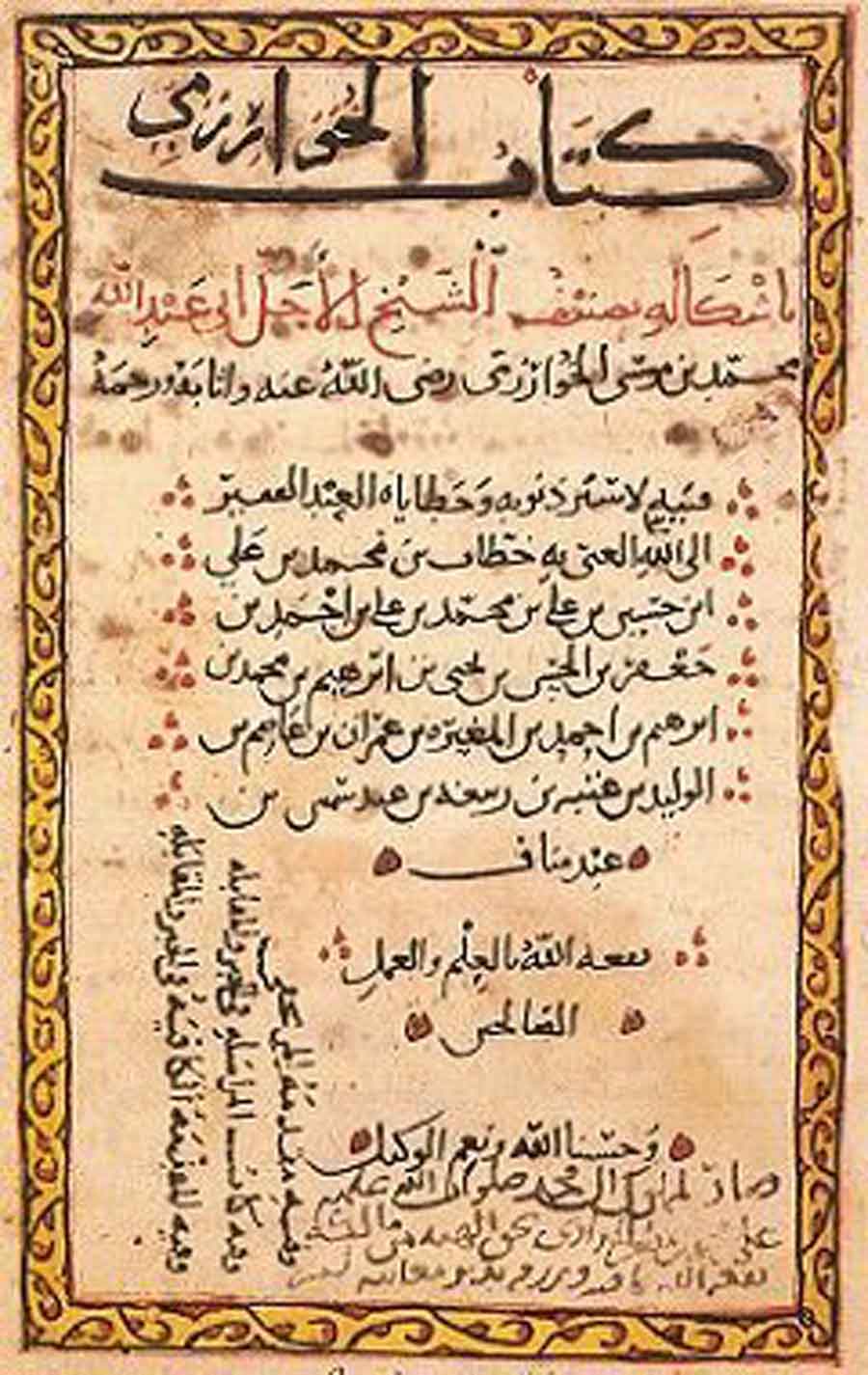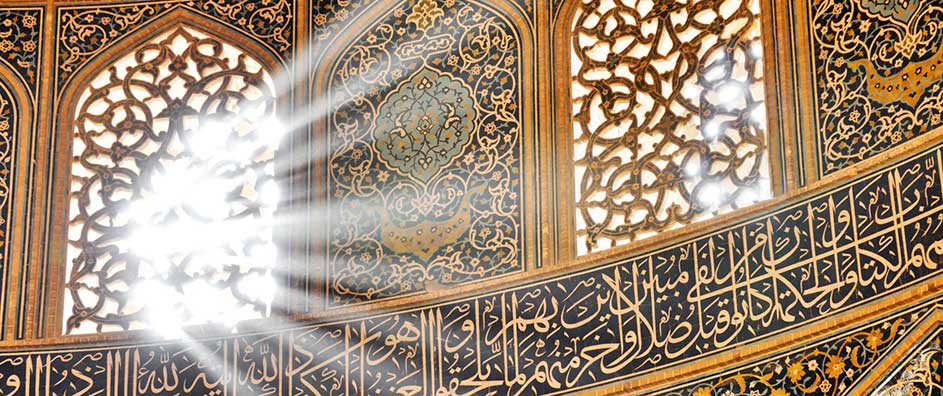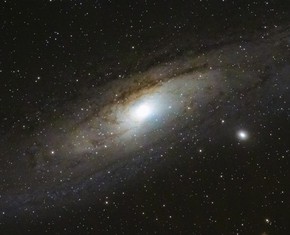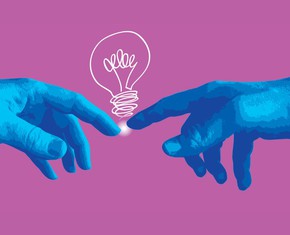The views expressed in our content reflect individual perspectives and do not represent the authoritative views of the Baha'i Faith.
The pious Muslim . . . was expected to avoid . . . [rational] sciences with great care because they were considered dangerous to his faith. . . – Ignaz Goldziher (1916)
. . . possession of all this ‘enlightenment’ [of Greek thought] did not prompt much intellectual progress within Islam, let alone eventuate in Islamic science. – Rodney Stark (2003)
Alas, Islam turned against science in the twelfth century. – Steve Weinberg (2007)
Today many people tend to think of Baghdad as a benighted place with a struggling populace shivering in fear of terrorist bombings. In the tenth century, though, Baghdad was the capital of the Abbasid Empire with a population over one million, a cultural center where scientific and philosophical activity was avidly pursued.
One of the “dangerous” pursuits carried on by pious Muslims was a massive project in which Sanskrit, Farsi, and Greek texts were translated into Arabic. By the twelfth century—when Weinberg alleges Islam had turned against science—these Arabic texts were translated into Latin for consumption in Christian Europe. The Latin translators worked from the Arabic rather than the Greek texts because the Abbasid scholars had added annotations and commentaries challenging, supplementing, and correcting some of the original Greek texts.
Despite this well-documented process, the myth persists that the Arab-speaking sages had nothing to contribute to the work they translated and were only uninventive parrots. Ironic, considering that the charge against Islam, as voiced by Goldziher, is that it was inherently inimical to these schools of knowledge. If that’s true, how were “pious Muslims” allowed to even translate these texts, let alone study them, disseminate them, and apply the knowledge they contained? The act of translation alone (supported monetarily by rank and file Muslims of all social strata) should be enough to put the myth to rest.
The Arab contributions to scientific and mathematical thought can be seen in the translation of such works as Diophantus’ Arithmetica into the Arabic Art of Algebra (the word “algebra” is a latinization of the Arabic phrase al-jabr—“the restoration”). In this work, Qusta ibn Luqa (820-912) framed the Greeks’ mathematical operations in terms of the new discipline, which was developed by the mathematician Muhammad ibn Musa al-Khwarizmi—from whose name we derive the term algorithm.

Early example of Algebra
The claim that these Muslim scholars added nothing new or original to the mix is easily discredited: when the Arabic text was reverse-translated back into Greek, it did not result in the original Greek text.
In fact, Muslim scholars dominated the field of science (especially mathematics and astronomy) from roughly 800-1300 CE. They did not see their science as being at war with their faith. The field of astronomy was important for reasons of faith and reason (i.e. the calculation of prayer times and the study of God’s might and perfection as well as natural causes of cosmic phenomena). The first observatory built by Muslim astronomers was constructed in Baghdad in 828 CE, while in the 1300s Ibn al-Shatir (a timekeeper at a Damascus mosque) proposed the lunar model used by Copernicus (Nikolaj Kopernik) in his 1543 work, De Revolutionibus.
The European universities I discussed previously used a number of Arabic texts that had been translated into Latin. Medicine would not be what it is today without the encyclopedic work of Ibn-Sina (Avicenna)—The Canon. This text was used for centuries in European medical colleges. A further sampling in the field of medicine yields the discovery of pulmonary blood circulation by a Syrian physician and theologian, Ibn al-Nafis. Moving to the discipline of physics, we can cite the work of al-Haytham (Alhazen) who linked mathematics and physics and who, according to science historian David Lindberg—author of Theories of Vision from al-Kindi to Kepler—was “the most significant figure in the history of optics between antiquity and the seventeenth century”.
Obviously, the situation is not so cut and dried as Steven Weinberg and company suggest. So, you might be asking, what gave rise to the idea that Islam contributed nothing to science (or at least nothing original) and, as Weinberg proposes, “turned against science” from about the twelfth century onward?
Weinberg’s answer is that Islam was influenced by a philosopher named Abu Hamid al-Ghazali who argued against the concept of static laws of nature on the basis that such laws would tie God’s hands. Like Ignaz Goldziher (quoted earlier), Weinberg claimed that the philosophies of Ghazali brought Islamic science to a standstill. How good is this claim?
George Siba—professor of Arabic and Islamic Science at Columbia University—points out certain problems with this evaluation, chiefly that the supposedly unscientific Sufi mystic not only supported the study and use of logic and mathematics (something even Goldziher concedes) but lamented that Muslim scholars were not doing as much as they could in the disciplines of anatomy and medicine. So, he undertook to write on these subjects himself:
If we only look at the surviving scientific documents, we can clearly delineate a very flourishing activity in almost every scientific discipline in the centuries following Ghazali. – George Siba, Islamic Science and the Making of the European Renaissance, p. 21.
How credible is it, after all, that a single Muslim scholar—one not in the mainstream of Islamic theology—could affect the thoughts, attitudes, and practices of even a significant portion of the Muslim world? Islam, unlike the Catholic Church or the Baha‘i Faith, has no centralized authority, least of all one that sets an agenda for the entire body of believers. Rather, a number of schools of thought have evolved within the two main sects. The Sufis are one of the more mystical traditions and, as a tradition, are credited by some as having inspired a Golden Age in Islamic scholarship starting—ironically— right around 1300.
It is Dr. Haq’s considered opinion—one shared by a growing body of scholars—that:
. . . for centuries, while science in the Latin West had lain in the doldrums, no culture in the world provided a more hospitable home to science than Islam. And no group of Muslims cultivated science more than the religious . . . – Syed Haq, Galileo Goes to Jail, p. 41.
In fiction, we call this “working against type.” The scholarly, science-loving cleric isn’t a character some of us expect to find on the pages of history and yet, as we learn more about the interactions between faith and science in the Middle Ages and beyond, we are forced to view him as typical rather than rare. As the Baha’i teachings point out, that balanced combination of science and religion endows us with the capacity to truly investigate reality:
God has given man the eye of investigation by which he may see and recognize truth. He has endowed man with ears that he may hear the message of reality and conferred upon him the gift of reason by which he may discover things for himself. This is his endowment and equipment for the investigation of reality. – Abdu’l-Baha, The Promulgation of Universal Peace, p. 293.
Next: Copernicus the Killjoy
You May Also Like
Comments

















You no doubt have researched the engineering application in architecture, aquaducts, gas lights, etc. in Spain during Islamic rule. Further evidence of science advancing with Faith.
To see what's on your slab
Now I shiver with antici.....pation.
But maybe my brain
Is really to blame.
You can remove the cause
But not the symptom.
Based on the "Rocky Horror Picture Show" song "Sweet Transvestite", but rotisseried.
All this tribute is merely to say I anticipate with ever-greater avidity each additional installment. Ty.